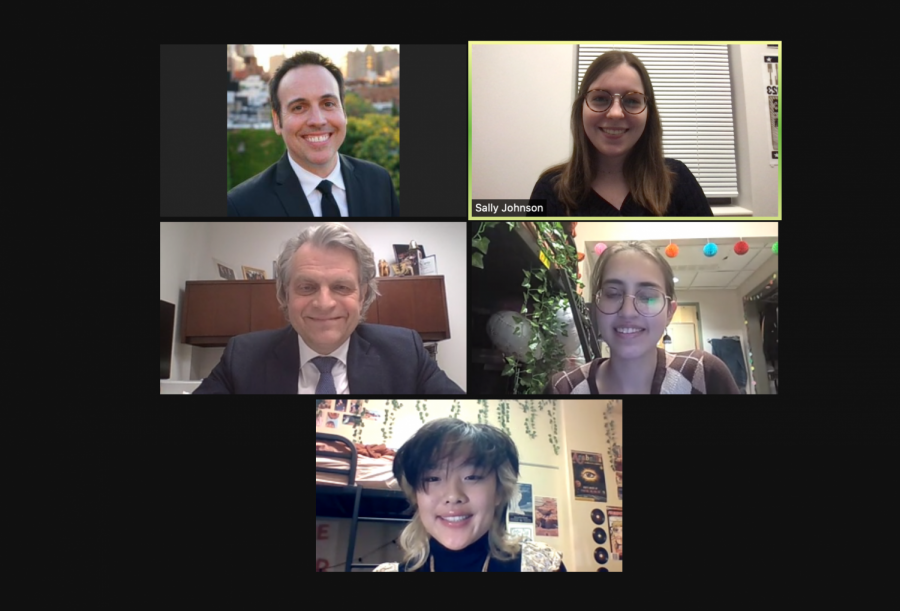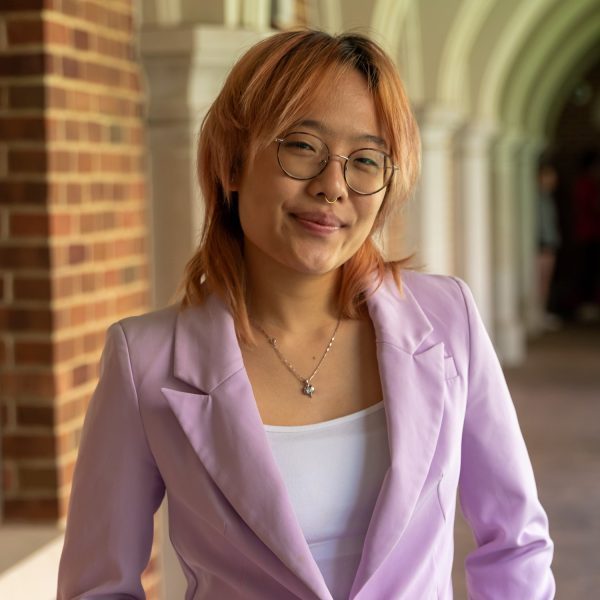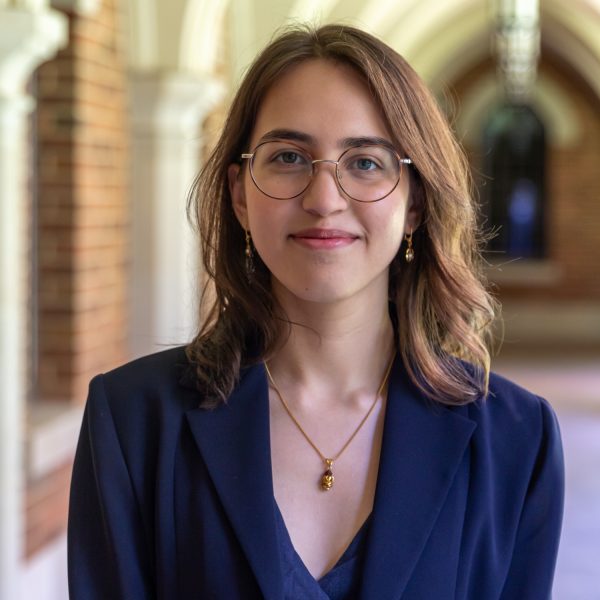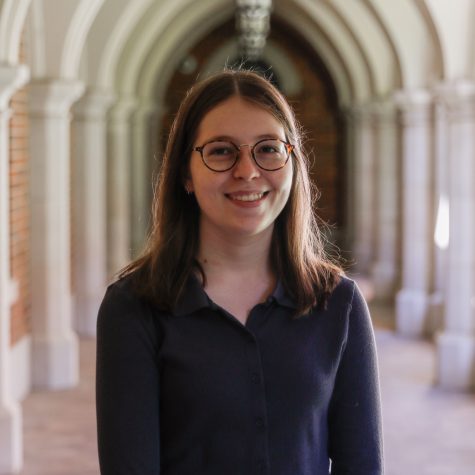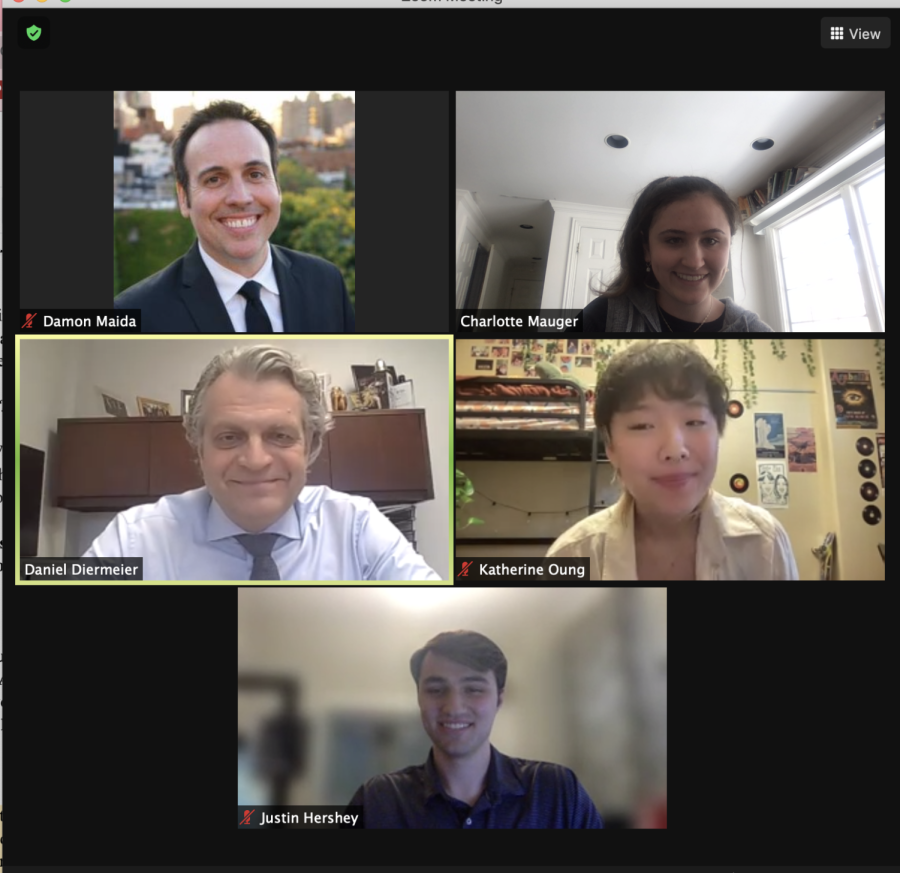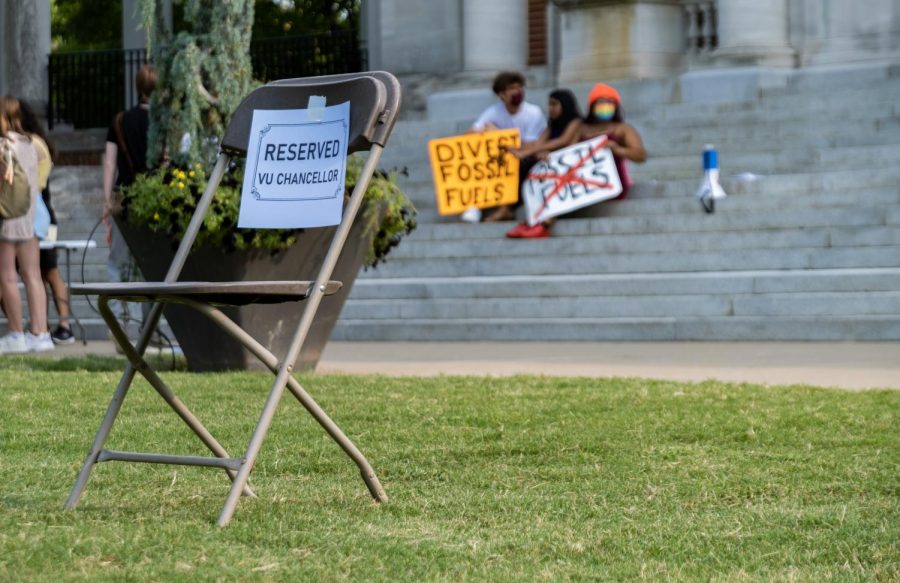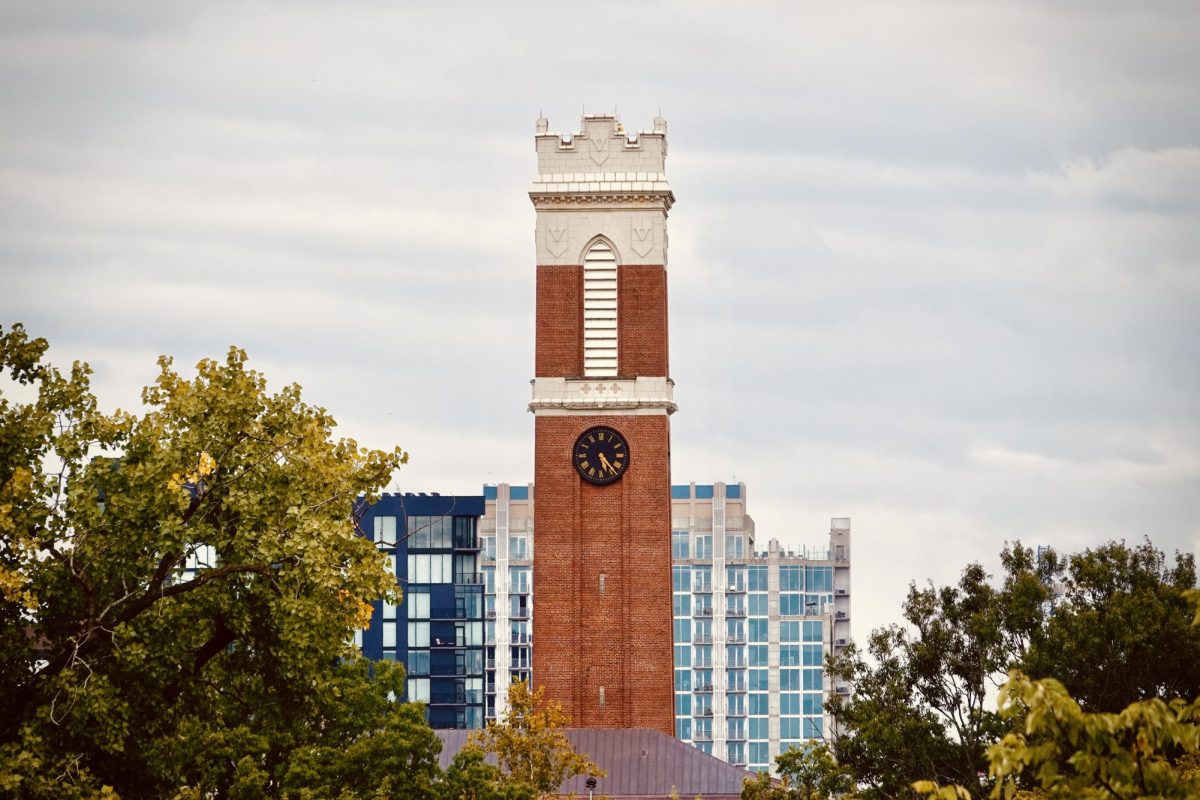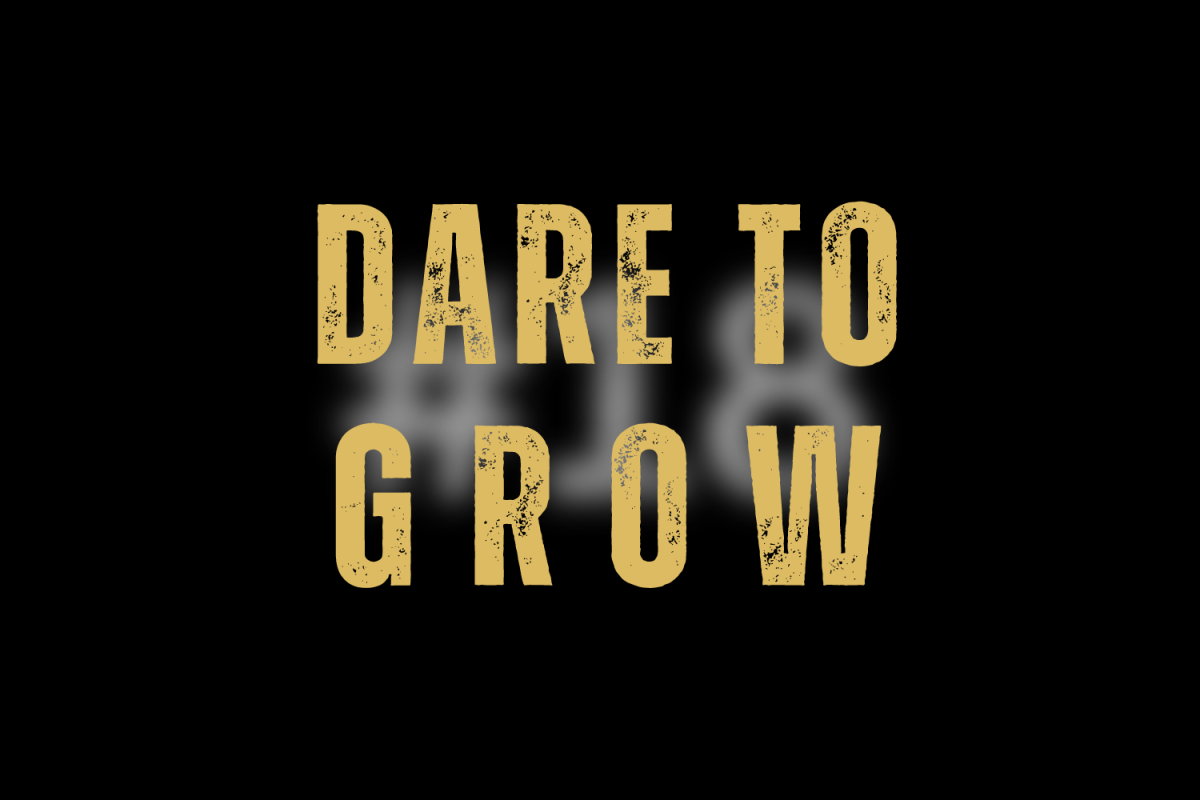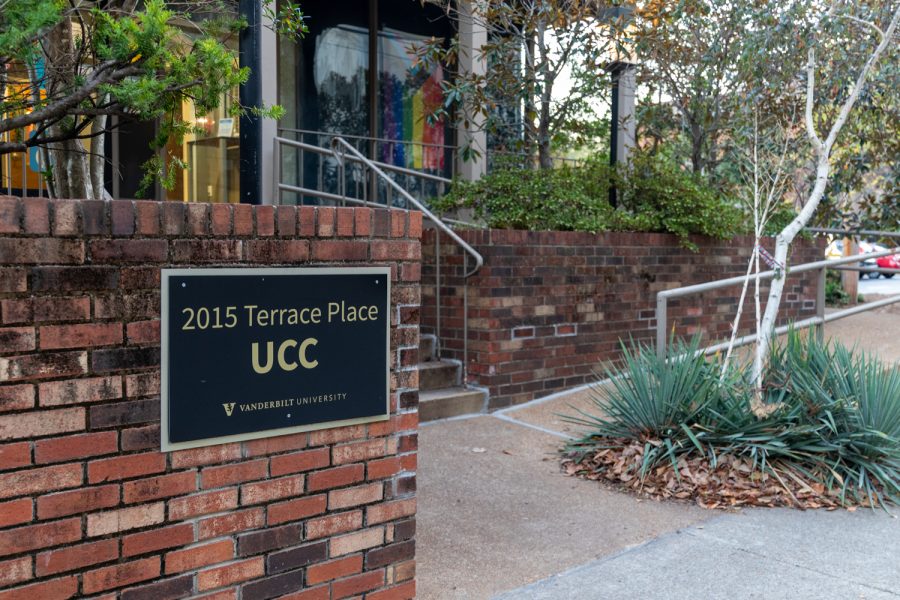At the end of the Fall 2021 semester, Chancellor Daniel Diermeier met with The Hustler to reflect on the first half of the 2021-22 academic year and to look ahead at the university’s future.
During a Dec. 8 Zoom call, Diermeier discussed his time as chancellor, the omicron variant, divestment from fossil fuels and the Multicultural Community Space.
Vanderbilt Hustler: In your last interview with The Hustler, you spoke about the highlights of your first in-person semester as chancellor. Have you noticed anything exceptional about the return to on-campus life as the semester has continued?
Chancellor Diermeier: I’m struck by the level of energy and pure joy to be back together. As you know, last year was challenging for everybody.
I’m very proud of how we as a community—faculty, staff and students—have reacted to these challenges.
It’s wonderful to see how we are returning to regular student life on campus and to see the amount of activity outside. I was also fortunate enough to participate as a guest lecturer in a couple of classes and to see the energy there from students was really powerful.
What made you want to be Vanderbilt’s chancellor?
I was provost at the University of Chicago for four years, and I enjoyed that role. But I also felt that I was ready to move into a chancellorship or a presidency after my time as provost. When I was approached by Vanderbilt about the possibility of becoming their ninth Chancellor, I was struck right away by the culture, the sense of collaboration, the sense of community and the commitment to the university. In addition to that, I had heard about Vanderbilt and the progress that it had made as a university and the tremendous momentum that was there. Finally, of course, [I liked] the fact that it was in Nashville and that Nashville is a really booming, vibrant, creative community. And I have to say, it’s getting even more so.
Everything that I had heard before about this role, the culture of Vanderbilt, the sense of momentum and possibility of the university and what Nashville is all about has actually exceeded my expectations.
As a person who entered into a new position during the COVID-19 pandemic, do you have any advice for students who will be entering the workforce while COVID-19 remains a concern? How can students be great leaders in a time of decreased interpersonal contact?
I always think about challenges, and COVID is a massive challenge, maybe a generational challenge, as opportunities for growth, opportunities to make a difference and opportunities to start leaving your legacy.
When we were dealing with COVID a year and a half ago, it was very clear that one can focus on all the deprivations and, of course, they’re real, and they’re serious.
But I always feel that in life, it’s more useful to think about the opportunities. How can we come together as a community to deal with this big challenge and make this our proudest moment? I think that’s how you want to think about your personal life, too. As you may remember, during our challenges that we had with COVID, I also encouraged our students to do that and to think about how they want to conduct themselves in this context so that this becomes their proudest moment. I would say the same thing is true now as you’re moving into your working life. This has got to be a different working environment.
On the other hand, there are tremendous opportunities that your generation will have. The economy is booming and there’s an enormous amount of change that the world and the country are going through. Think about this as an opportunity to write your own chapter and to make a difference in your life and in the lives of others.
Effective on Nov. 15, LiUNA Local 386 workers union and Vanderbilt agreed on a new contract. It includes an increased minimum wage, Martin Luther King, Jr. Day as a paid holiday and more opportunities for its workers. What are your thoughts on relations with Vanderbilt’s staff?
I first want to say that our dining workers and all staff in general, particularly our dining service, have really stepped up during very, very challenging times. We’ve had tremendous staffing challenges and supply chain delays, like everywhere in the country. But these are particularly pressing in university contexts. They continue to bring the very best every day, and I couldn’t be more proud of what they’re doing.
I’m very pleased that the negotiations between the union and Vanderbilt were collaborative. We are committed to making sure that the members of our staff are being well compensated and that they have a great working environment. And we’re always in dialogue with the faculty, staff and students about how we can improve things across the board. I also want to point out that LiUNA was a big partner in our program to have our staff vaccinated. I’m very pleased that we could take this to a successful conclusion for everybody.
On Oct. 28, the Multicultural Community Space opened to the Vanderbilt community. Does the university have any future plans to continue to make space for international students and students of color?
We’re very pleased with that. As you probably know, I was an international student myself, so this is an issue that’s very close to my heart. We’re very, very proud of the international students that are members of our community. They come to American universities because they’re attracted to places like Vanderbilt that realize their full potential. It’s very important to us that we create a culture of belonging for them and for other students that come to Vanderbilt.
So I really like the way we’ve been thinking about the Multicultural Community Space because it really provides a place where students from different backgrounds can come together to collaborate and exchange ideas. I think that will help make a big step in creating a culture of belonging for all of those students.
Beginning in 2019, there have been calls, including a VSG initiative, for the renaming of buildings on campus, such as Calhoun Hall. Perry Wallace Way and Vivian Thomas Way were recently renamed to commemorate pioneers in the Black community. Does the university have any plans to continue this renaming campaign?
We always look at names and opportunities for naming. We also look at the symbols that are part of our history. That’s an ongoing process that we revisit from time to time. I like the idea that we are adding new recognitions. We recognize the pioneers that were trailblazers in their time, and we look for opportunities in order to recognize them in the future as well.
One example of that is the creation of the James Lawson Institute, which is an institute that is focused on the theory of nonviolent movements, which Reverend Lawson was one of the leading thinkers and pioneers of.
After the recent COP26 conference, many expressed dissatisfaction with the lack of concrete action taken by government and other institutional leaders around the climate crisis. What are you and Vanderbilt doing to address this?
I think that everybody needs to look at their own mission and their purpose in helping to address questions of climate change. For a research university like Vanderbilt, we need to be able to engage in research that helps us to further understand how climate change operates and look at policy solutions for that. We need to engage in the education of our students. That means that we have the programs and offerings that help our students to move forward. We also want to be a place of innovation, and we have done a lot of work on that.
One example is partnership with Tennessee Valley Authority, which won the 2021 Governor’s Environmental Stewardship Award. It was a new model, an innovative model of collaboration to expand access to renewable energy and provide jobs and research opportunities. We have also joined the Race to Zero, which is a global coalition of more than 1,000 education institutions. We’re on track to be carbon neutral for electricity by 2023.
We have also engaged in an innovative collaboration with the nonprofit organization called Climate Vault, which allows us to make a dramatic impact and bring our carbon footprint to zero immediately, decades ahead of our goal. In addition to that, we’re working operationally as part of our FutureVU sustainability plan. There’s a whole bunch of things, all motivated to make an impact. But the importance is that we develop innovative solutions that make an impact in our community, but can also be adapted by others. That seems to be a very, very important role for universities, just like we do in the Medical Center when we have a new surgical technique for a liver transplant that can be used by other medical centers. I think finding innovative solutions for climate change is a very important part of what great research universities are all about.
Last week, former Vice President Al Gore endorsed divestment from fossil fuels at Vanderbilt. What is your reaction to Gore’s endorsement of Vanderbilt divesting from fossil fuels? Why has the university not taken this step?
I have the highest respect for Vice President Gore. I know him well. I consider him a friend. And he’s one of our distinguished alumni from Vanderbilt. Among friends, we can disagree on certain things. And on this particular issue we disagree. I think an important part of why we look at this differently is that Vice President Gore has been a leading advocate on issues of climate change. And, of course, as a chancellor of the university, I have to think about any policy issues and the issue of climate change from the point of view of a university and how a university should respond to that, not as a political entity.
Universities should be innovators, but they should not prescribe policies for others.
We should be a forum where faculty and students can discuss ideas. We should develop innovative solutions that can be used by others, but we should not prescribe what a particular policy solution should be. I don’t think that’s the role of universities. By divesting, we would be saying that the best policy solution to address climate change is to cut off capital for Western oil companies. We can have lots of debates whether that’s a good policy solution or not, and all faculty and students and alumni would have different points of view about that. That’s what a university should be about. The university should not have a party line on any policy issue that doesn’t directly affect the operation of the university.
Ben Crump recently spoke to the university as part of Vanderbilt Programming Board’s Speakers Committee. If you could have any speaker at the university, who would it be?
I love the fact that we bring great speakers to Vanderbilt. It’s a big advantage for being a distinguished research university that we’re able to do that. I’m very excited that Reid Hoffman, co-founder of LinkedIn, was just announced as a Graduates Day speaker. I also like to hear from people from across the spectrum—artists, research-oriented experts, and leaders from a variety of businesses. If I could pick anybody, dead or alive, it would be Johann Wolfgang von Goethe who was a great writer, a great novelist, a great screenwriter, but also a great scientist—and just a universally great mind.
The omicron variant of COVID-19 has become a recent topic of conversation around the world. Are you concerned about the variant and how it may affect Vanderbilt’s campus?
I’m certainly concerned about the omicron variant. Our approach from the beginning of the pandemic has been to always look at the best available science and public health information, to adopt a flexible and adaptable approach, where we will change and adjust our approaches in response to new information, and then always driven by a mission.
Our mission in this particular case means making sure that our faculty can do their research and teach and that our students get a transformative education. That has not changed.
We are very early in our understanding of the omicron variant. It will take a few weeks until we really have a good understanding of the consequences, its transmissibility, the severity of the infection, the role that vaccines will play, whether they will have the same effectiveness with respect to omicron.
Our approach will be transparent. We will talk to our stakeholders. We will talk to our students, faculty and staff. It will always be driven by the best science and public health information. Right now, we’re early in our understanding. And, if the facts on the ground and our spending of COVID-19 change, we will make adjustments, but, at this point, we’re still waiting to understand exactly how this new variant will operate and what the consequences will be.
Will COVID-19 vaccine booster shots become part of Vanderbilt’s COVID-19 vaccination requirement? If so, when?
That’s a decision that we will make once we have a better understanding about the dynamics of disease patterns and it will be driven by the data. Right now, we are doing very, very well in terms of our caseload. Our caseload is very low. Vanderbilt has been the safest place in Tennessee when it comes to the COVID-19. Any specific policy solution that we adopt will depend on our understanding of the disease. Of course, there’s a political and legal environment that we have to comply with. That includes both federal law and state law and, for those of you who have been following that, that is a rapidly evolving environment. And all of that needs to be navigated carefully and we will continue to do so.
Answers have been edited for length and clarity.

